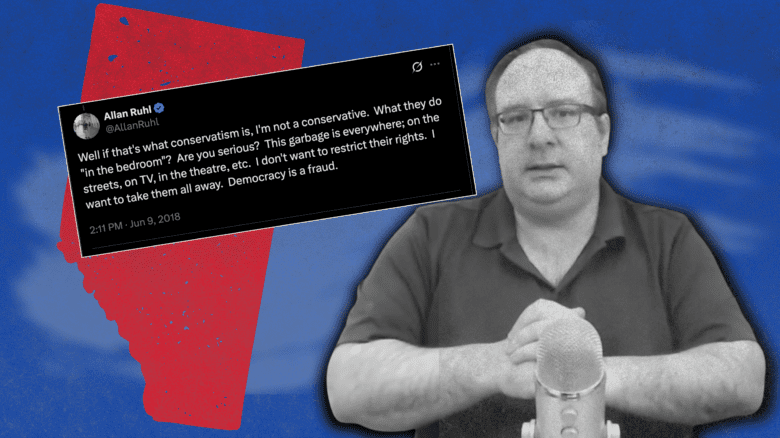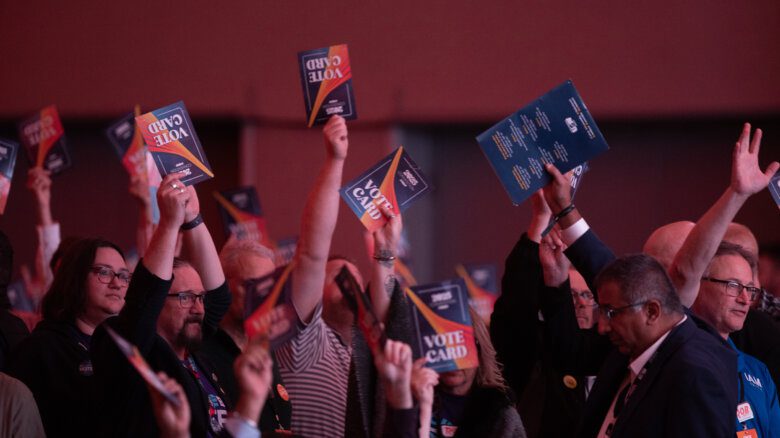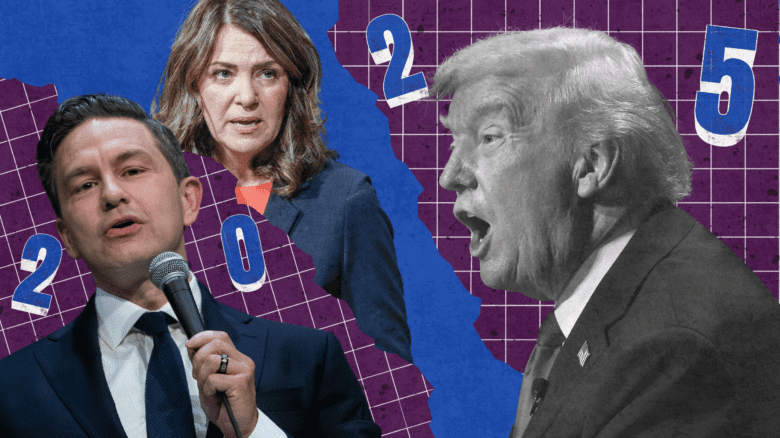Incumbent Emmanuel Macron defeated far-right challenger Marine Le Pen in Sunday’s closely watched French presidential elections. Although the win was more decisive than recent polling suggested, the vote nonetheless represents the best showing in history for France’s anti-LGBTQ+, anti-immigrant National Rally.
With 100 percent of ballots counted, results show Macron leading Le Pen by a margin of 58.5 percent to 41.5 percent. The 17-point victory marks the first time since 2002 a French president has won a second term in office, when Jacques Chirac defeated Le Pen’s father, Jean Le Pen, by more than 67 points. The elder Le Pen is the founder of the National Front, a xenophobic political group that renamed itself the National Rally in 2018.
Although early polls had indicated that Macron and Le Pen were neck and neck during the final days of the race, the result is hardly a decisive show of support for Macron. More than 28 percent of French voters abstained from casting a ballot on Sunday, the highest such total since 1969.
Many cite the large number of non-voters as a reflection of dissatisfaction with both candidates’ policies. Surveys show that Macron lost significant support among younger voters in April after an advisor for his presidential campaign announced a plan to raise the retirement age from 62 to 65 for people born after 1969. Although unemployment is the lowest in 13 years, he has also been met with criticism for loosening labour laws to make it easier for companies to fire workers.
After losing the presidential elections in 2012 and 2017, Le Pen tried to distance herself from the nativist appeals that defined her previous bids. She dropped a pledge to leave the European Union and instead campaigned on lowering the sales tax and abolishing the sales tax for individuals younger than 30.
Critics warned that Le Pen’s softened image masked the fact that little about policies had changed since her prior candidacy. Le Pen has promised to prohibit Muslim women from wearing head scarves if elected president, referring to the traditional religious attire as a “uniform imposed by the Islamists.” She has also called to pass laws that would give French citizens born within the country’s borders priority over immigrants in hiring, housing and other areas.
While Le Pen came up short yet again, the election totals indicate that her pivot is working. When she ran in 2017, Le Pen won just 33.9 percent of the vote, which was still a record result for the National Rally at the time. The party was founded in 1972.
Le Pen’s continued gains could spell trouble for the LGBTQ+ rights movement in France, as both Le Pen and the National Rally have long opposed equality. Le Pen’s rebrand included attempting to sell herself as queer-friendly by hiring gay advisors and exploiting the Pulse shooting by pledging to protect LGBTQ+ people from terrorism, and yet her 2017 platform threatened a same-sex marriage ban. She called to replace marriage equality with civil partnerships, the standard until 2013.
Le Pen’s father has an even worse track record on LGBTQ+ issues. He has compared people living with HIV to lepers, and claimed there is a link between homosexuality and pedophilia. On the subject of gay members within the ranks of the National Rally, he said in 2016 that LGBTQ+ people are like “salt with soup.”
“If there isn’t enough, it’s a bit bland,” he told the Le Figaro newspaper at the time. “When there’s too much, it’s inedible.”
The elder Le Pen was fined by a court in 2017 over his myriad anti-LGBTQ+ remarks, including criticizing a public eulogy for a gay policeman killed in a terror attack. He was forced to pay more than 5,000 Euros for violating France’s hate speech laws, with the possibility of imprisonment for non-payment. He vowed to have the order overturned, but the appeal does not appear to have been successful.
Following Sunday’s elections, Macron recognized he has a great deal of work ahead if he hopes to stave off the surging far-right. France’s parliamentary elections are scheduled for June, in which 577 seats will be up for grabs. A strong showing by the National Rally would hobble Macron’s second term by limiting his ability to implement his agenda.
“An answer must be found to the anger and disagreements that led many of our compatriots to vote for the extreme right,” the president said in a speech delivered at the Eiffel Tower. “It will be my responsibility and that of those around me.”


 Why you can trust Xtra
Why you can trust Xtra


